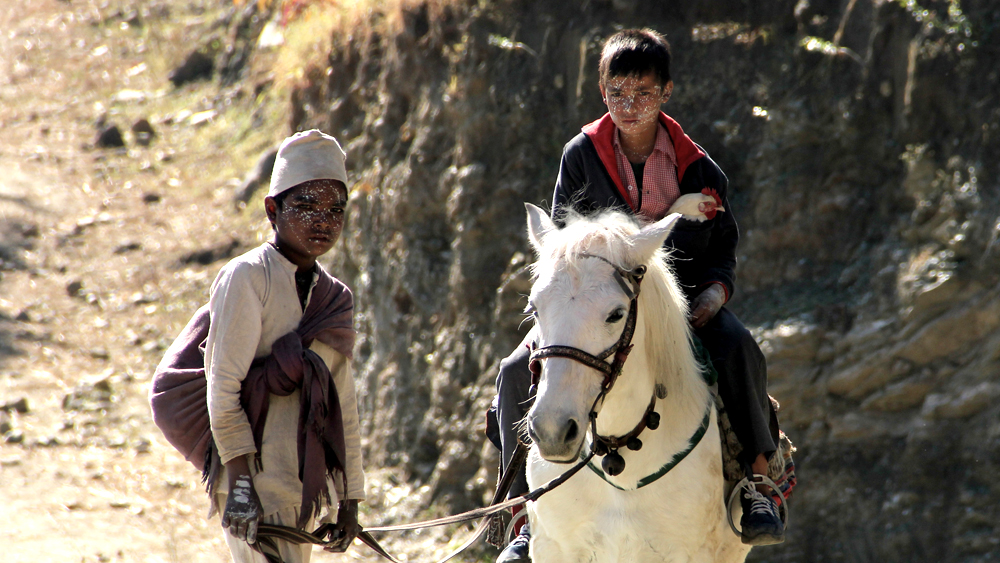Reviewed by Andrew Hamlin
Northwest Asian Weekly

![]()
![]()
![]()
![]()
At one point in Min Bahadur Bham’s “The Black Hen,” set in a small town in Nepal during that nation’s civil war, a small boy bends over, grasping his shins as a punishment from the schoolteacher, next to two boys enduring the same punishment. He stands straight, just for a second, to pull up his zipper, then resumes his stance. Later, as the government troops and insurgent Maoists exchange gunfire in the woods, a boy will drop to the ground, near some corpses, rub blood over his face, and pretend to be dead. He rolls his eyes back to imitate a corpse. Then, in a split-second, he decides in fear that rolled eyes won’t do, and he simply closes them. He makes the right choice — right before the soldiers run past him.
Such small moments give life to the quotidian aspects of a country at war. Horror springs up, rifles crack, and one must choose quickly, and wisely, to survive. But life, school, friendships, struggles, all continue in and around war. Two boys of different castes must decide if they can become friends and stay friends — the answers change as their circumstances change. Some of their elders believe that cross-caste friendship is not only impossible, but absurd, and dangerous to contemplate. The boys aren’t willfully out to prove anyone right or wrong. They’re only looking for friendship. The action meanders at times, but the story isn’t out to be suspenseful or distinctly horrifying. It looks at life in war. And life goes on. Life insists on itself.
June 6 — SIFF Cinema Uptown Festival, 8:30 p.m.
June 7 — Ark Lodge Cinemas, 9 p.m.
Andrew Hamlin can be reached at info@nwasianweekly.com.



